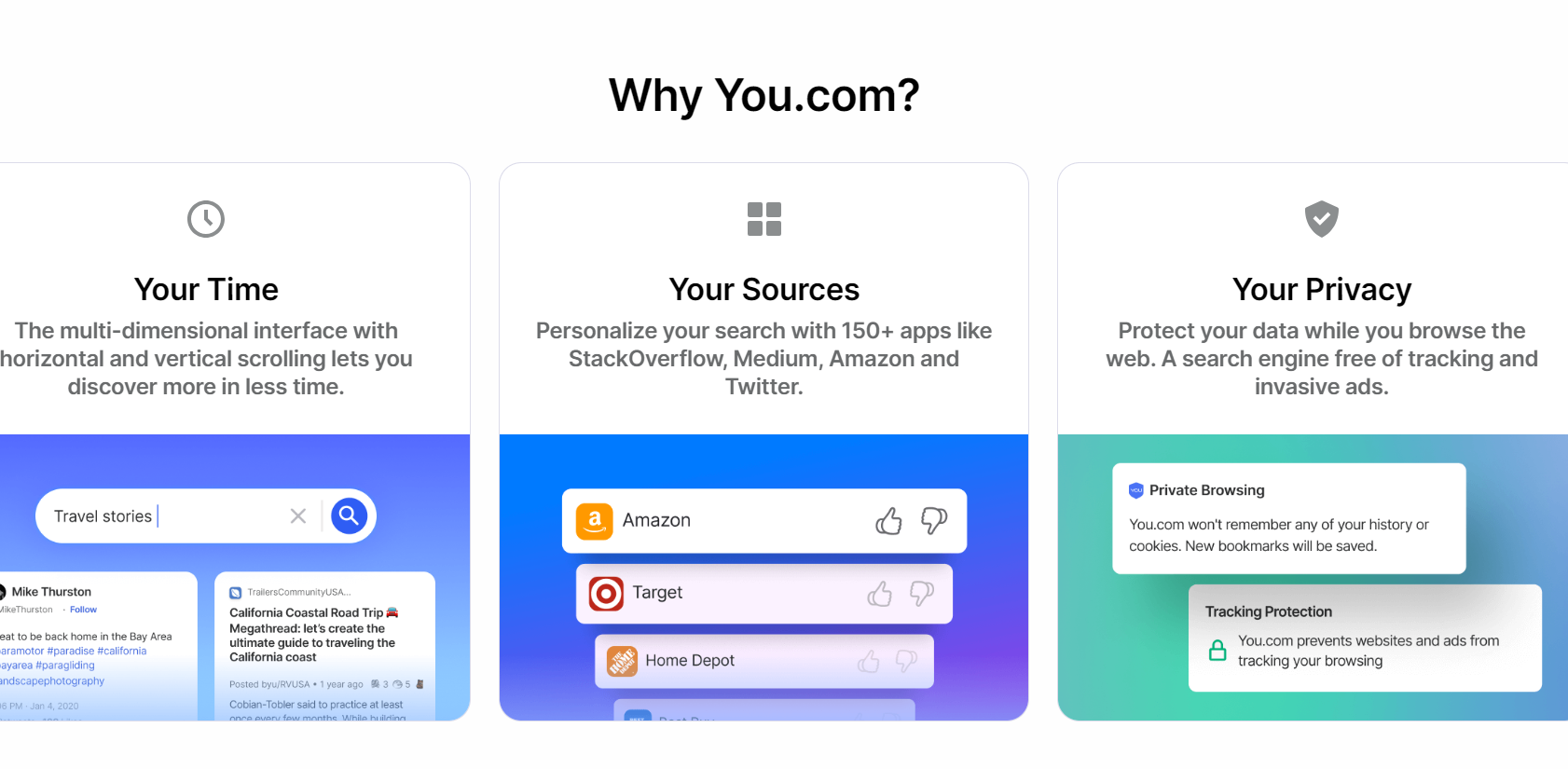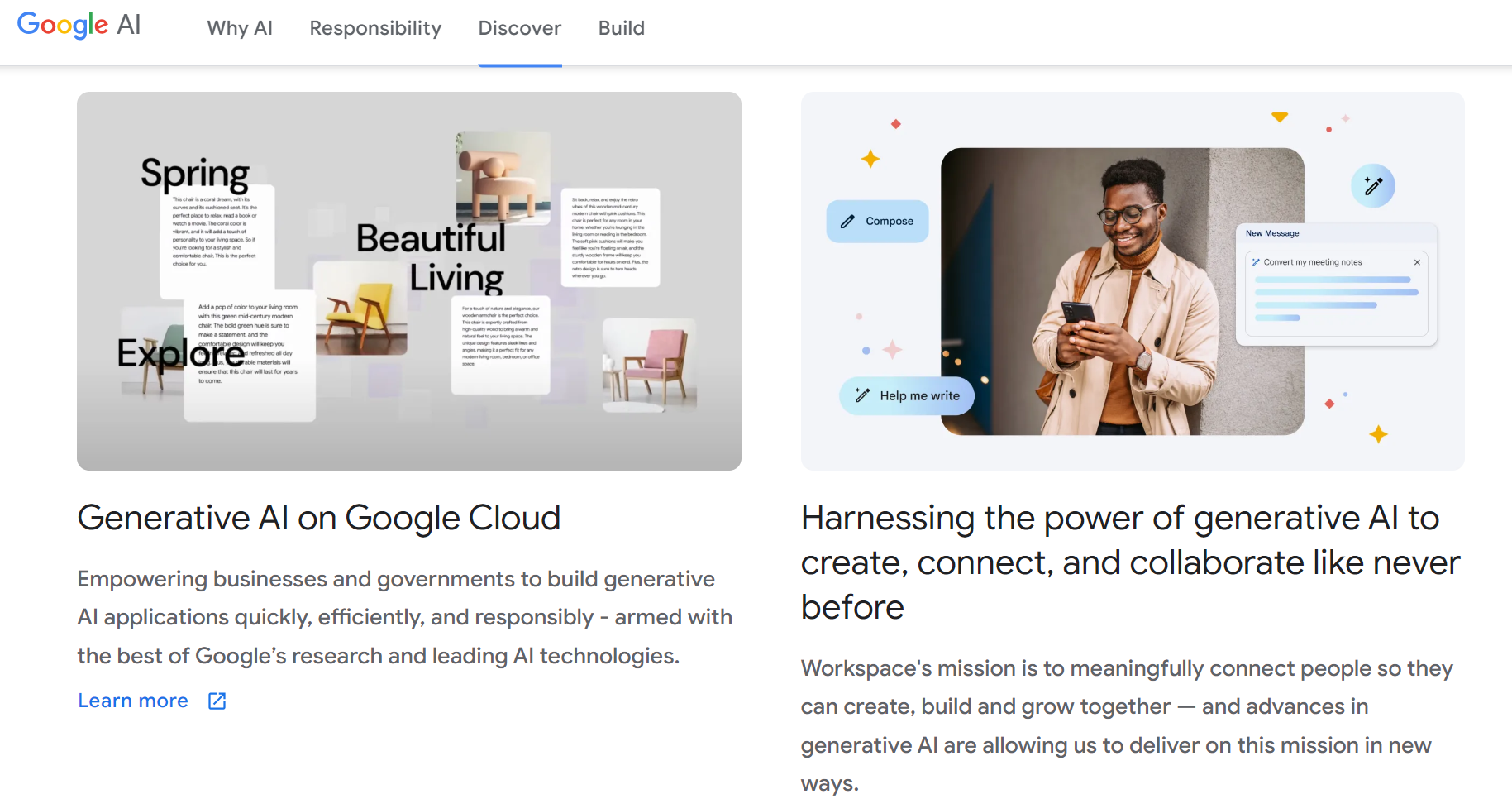Introduction
In this blog, we have discussed the top 6 companies that use Gen AI chatbots. Come let’s take a tour of the top 6 giants. One subset of AI, known as generative AI, employs tools like NLP, neural networks, and deep learning to generate novel concepts and data. You may use generative AI to create everything from writing and images to videos and music, as well as synthetic data and object models, for yourself or your business. Generative language modeling, writing, and imagery tools are now the most well-known applications of generative AI, such as ChatGPT and Stable Diffusion.
Industry View
Generative AI Chatbots are like Office Assistants and they help you with multiple random work from drafting points to organizing ideas or helping solve specific data problems like getting a particular date something was done in history. It has improved working speed and helped lots of CEOs reduce the excessive time it takes to search for some kind of useful data. It is quite a revolution are work and is helping overwhelming tasks and data mining for useful information a lot easier. I would really love to see more improvements in Generative AI as this will help us build more complex systems very fast.
links for Fintech – FinTech RADAR: 105 U.S. Fintech Unicorns And Their Core Offerings
6 Tech Giants Harnessing Generative AI Chatbots
Microsoft
Microsoft is a pioneering force in the field of generative AI, having created a number of its own generative AI tools and providing financing for OpenAI’s cutting-edge research. Recent updates to Microsoft’s Bing have made it the first major search engine to include generative AI functions via a chatbot. All of Microsoft’s 365 services now have support for content generated by artificial intelligence.
Microsoft 365 offers more than just a suite of powerful Office desktop tools like Word, PowerPoint, and Excel that can be used for collaboration between teams. Microsoft 365 is the productivity cloud intended to assist everyone to accomplish what is important, in our work and life, with top-tier Office applications, cloud benefits, and high-level security.
Additional web storage space and cloud-based features that facilitate constant document collaboration are also provided. Microsoft 365 is an effective cloud service for both personal and professional endeavors. Microsoft 365 includes not only the standard Office suite (Word, Excel, and PowerPoint), but also robust cloud services, device management, and superior security.
Get started by employing Microsoft. With the release of the “new” Bing, which is set to completely transform the way people execute web searches, the company also debuted its first-ever chatbot. In addition, the AI-enabled Edge browser was a part of it. Microsoft, a major backer of OpenAI, built an AI tool that is “far more powerful” with the use of technologies developed by ChatGPT. So far, we’ve seen results that range from completely unexpected to quite remarkable. Beta users were given access to the “new” Bing and given the opportunity to do a variety of searches.
Microsoft introduced a five-answer limit and a 50-question maximum to try to reduce some of Bing’s most absurd replies, but the company eventually removed some of these restrictions after receiving complaints from customers. Microsoft intends to improve Edge with AI features that will enable you to sum up the webpage or document you’re reading online and create text for emails, social media posts, and other purposes.
Google surprised us by letting Microsoft get away with launching an AI chatbot that could damage Microsoft’s core business (search). This is why it was so eager to introduce its own artificial intelligence chatbot, Bard, even if its capabilities are still mostly unknown. Google employees apparently voiced their discontent with the unveiling in internal chats, which was much less organized than Microsoft’s. A factual error was made by Bard even in the initial sample that Google shared on Twitter. However, in the “coming weeks,” the chatbot will be made available to a far larger audience.
Meta
AI is a focus for Meta, the business that owns Facebook, Instagram, and WhatsApp. The bot was trained on “over 48 million publications, textbooks, reference material, chemicals, proteins and other sources of scientific information,” according to Meta, but when the business made it available in a public beta last November, it performed poorly. The instrument received harsh criticism from the scientific community; one expert even dubbed it “hazardous” because of its inaccurate or biased conclusions.
Galactica, the framework for language it created, is used by researchers and scientists to do anything from annotating molecules to summarising academic publications to tackling math problems. Meta soon terminated the virtual assistant.
Galactica is not Meta’s first attempt at creating an AI simulation. It also produced BlenderBot 3, which is designed to function somewhat like a personal assistant. Vox’s Kelsey Piper tested the chatbot and found that its responses “were extremely terrible” but that GPT-3, the framework on which ChatGPT is based, is “wildly better” than BlenderBot.
Read: 5 Unconventional Ways To Make Money On Crypto In 2023
Anthropic
Leading generative AI startup Anthropic holds the view that quality and security should come before quantity and speed. In addition to policy experts, business executives, and stakeholders from various governmental, academic, nonprofit, and industrial backgrounds, the team’s members include AI researchers and engineers.
Anthropic, an AI research firm established in 2021 by former OpenAI personnel, is developing Claude, a Chat-GPT rival that hasn’t been fully released to the public yet. In the latter half of 2022, Google spent $300 million in Anthropic. The chatbot was created by the corporation using a process it calls Constitutional AI. The framework is the subject of an entire research paper, but, in brief, it entails Anthropic training the language model with a collection of roughly 10 “natural language commands or principles” that it employs to autonomously revise its responses.
Anthropic claims that the system’s objective is to “train better and more harmless AI assistants” without using feedback from people. When provided access to Claude, Scale, an AI data platform, explained some of the variations between Anthropic’s bot and Chat-GPT. The system created by OpenAI could face “severe” competition from the service, and it was discovered that the bot was “more disposed to decline incorrect requests.” Yet, there are some limitations because Claude still seems to be prone to factual and mathematical errors. Claude is currently only accessible to businesses and is not yet available to the general public.
You.com
The “search engine you manage” is what You.com, a business founded by two former Salesforce workers, promotes itself as. It may initially appear to be your standard search engine, but it includes an AI-powered “conversation” capability that functions very similarly to the one Microsoft is testing on Bing. The YouChat chatbot was initially introduced by You.com in December 2022. According to the business, it is based on the C-A-L model and is “mixed with AI-powered chats, You.com apps, online links, and citations.”
 YouChat’s AI is comparable to Microsoft’s in that it can build code, write essays, summarise online pages, and respond to a variety of queries with annotated responses. You.com recently launched built-in AI picture generator models, such as Stable Diffusion 1.5, Stable Diffusion 2.1, and Open Journey, that you can use to generate images based on a given description in addition to providing users with access to an AI-powered chatbot. Along with giving regular results from the web, the search engine also organizes your search results based on pertinent comments on websites like Reddit, TripAdvisor, Wikipedia, and YouTube.
YouChat’s AI is comparable to Microsoft’s in that it can build code, write essays, summarise online pages, and respond to a variety of queries with annotated responses. You.com recently launched built-in AI picture generator models, such as Stable Diffusion 1.5, Stable Diffusion 2.1, and Open Journey, that you can use to generate images based on a given description in addition to providing users with access to an AI-powered chatbot. Along with giving regular results from the web, the search engine also organizes your search results based on pertinent comments on websites like Reddit, TripAdvisor, Wikipedia, and YouTube.
Alibaba
Alibaba, a major Chinese e-commerce company, has recently joined the AI chatbot bandwagon. In early February, a business spokesman confirmed to CNBC that internal testing was underway of a Chat-GPT replacement. Alibaba has reportedly been exploring generative AI since 2017, although the company has provided no details about when or what the resulting tool would be capable of. As a result, it’s possible that no other Chinese company working on an AI chatbot will ever be able to release their product, and that the effectiveness of any such product would be severely curtailed by China’s strict censorship restrictions.
latest article: 10 Best Applications Of AI In Banking
Alibaba might have to overcome certain challenges before starting its own ChatGPT, though. According to a Nikkei Asia story, Chinese regulators have already advised Tencent and Ant Group, which are owned by Alibaba, to censor access to ChatGPT due to worries that the bot may promote restricted content. Before releasing their own bots to the public, corporations must also consult with the government.
Baidu
“Ernie Bot,” an AI tool developed by the Chinese company Baidu, has been off-lately been available to the public. In addition to its namesake search engine, Baidu also provides a number of other web-related services, including as a mapping platform (Baidu Maps), an online encyclopaedia (Baidu Baike), a cloud storage service (Baidu Wangpan), and more. Also, it is developing an autonomous vehicle employing AI technologies.
Since its initial release in 2019, Ernie which stands for Enhanced Representation through kNowledge IntEgration has developed into a program that resembles ChatGPT and can provide conversational answers.
Baidu plans to incorporate the chatbot into its search engine, just like Microsoft and Google have done, and will even incorporate the technology into the next electric vehicle produced by Chinese startup Jidu. Baidu is working on a text-to-image model called Ernie ViLG to produce images based on the Chinese language in addition to its Chat-GPT-style tool. This model is comparable to OpenAI’s DALL-E 2 system and Stability AI’s Stable Diffusion AI image generator.
Read: Let’s Dive Deep Into Fintech Vs The Conventional Banking
Conclusion
It’s 2023 and we are in some form using AI knowingly or unknowingly. The capabilities of AI in 2023 are comparable to those of calculators from 100 years ago. Initially, resistance and confusion persist which gradually fades away making the tech a common acceptance. In a similar vein, generative artificial intelligence will slowly but surely become the new standard for all of us. Although we discussed in this blog the major six tech giants harnessing the power and technology of Gen AI, there are hundreds more in the queue who are vouching for this space.
Gen AI is in its infancy and there is much more to be discovered. Companies specializing in generative AI provide engaging AI technology to their clients, developers, and technical users. If you’re interested in the potential applications of generative AI, the firms on this list have developed some of the most intriguing tools and use cases to date. They’re worth keeping an eye on.
[To share your insights with us, please write to sghosh@martechseries.com]

